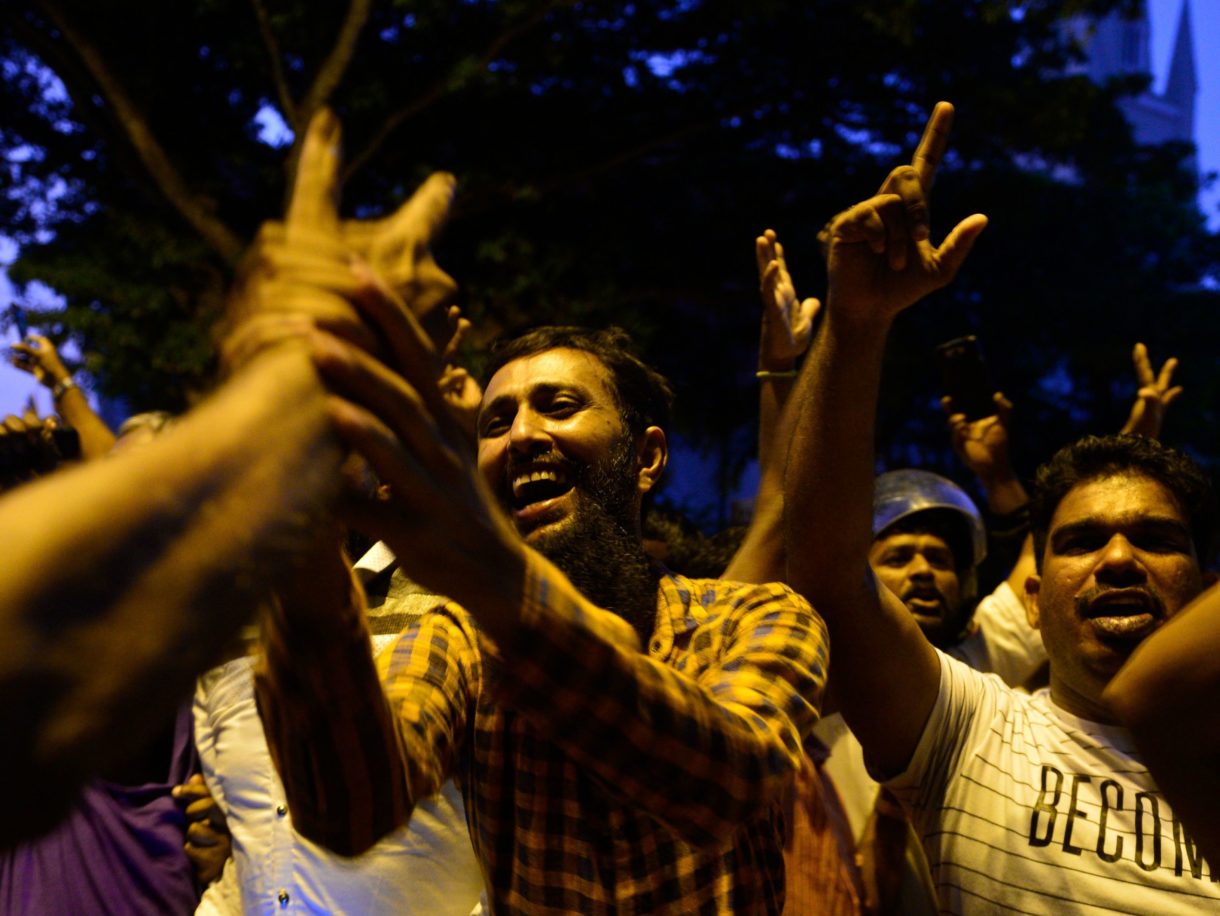Less than three weeks after Sri Lankan President Maithripala Sirisena shocked the country by sacking his prime minister and suspending Parliament, his bid to consolidate power has hit a major speed bump: the country’s Supreme Court.
Justices have overturned Sirisena’s recent decree dissolving Parliament, and issued an order of their own, staying the president’s attempt to replace sitting lawmakers through snap elections. Sirisena had wanted to push forward with snap elections in January, but court is putting that plan on hold for now while it considers the constitutional arguments against the move.
Tuesday’s ruling met with celebrations from Sirisena’s critics, who say the president violated Sri Lanka’s constitution with his actions in recent weeks, beginning with the abrupt firing of Prime Minister Ranil Wickremesinghe late last month.
“The people have won their first victory,” tweeted Wickremesinghe, who has refused to cede his position to the man Sirisena appointed to replace him, former strongman leader Mahinda Rajapaksa. “Let’s go forward and re-establish the sovereignty of the people in our beloved country.”
The court’s decision marks the latest — but certainly not the last — chapter in a saga that opened with a bang on Oct. 26. That was when Sirisena ended his increasingly rocky political alliance with Wickremesinghe by ousting the minister and replacing him within hours with Rajapaksa. Then, amid protest from lawmakers, Sirisena proceeded to suspend Parliament, as well.
The following weeks did little to ease the chaos at Sri Lanka’s highest levels of power. The president and his newly appointed prime minister alleged an assassination plot by Wickremesinghe’s cabinet members, while elsewhere in the capital, Colombo, deadly clashes broke out between protesters and the security detail for one of those cabinet members.
And on Friday, after briefly flirting with the prospect of reconvening Parliament, the president reversed course again and said it would be dissolved entirely and replaced in a snap vote scheduled for January. He and Rajapaksa cast the decision as a bid to avoid bloodshed in an increasingly unstable political environment.
“As leaders, it is our responsibility and obligation to give the people the opportunity to voice their opinions on the future of [Sri Lanka],” said Rajapaksa, who has been dogged by allegations of war crimes and corruption connected to his decade in power. “A general election will truly establish the will of the people and make way for a stable country.”
Now, that plan is on hold until the Supreme Court considers it further early next month — and lawmakers expect Parliament to reconvene Wednesday.
And they expect to call the parliamentary procedure Sirisena apparently wished to avoid when he suspended the body the first time: a vote to determine whether the president has the backing of a majority of lawmakers. Members of Wickremesinghe’s party, the United National Party, have repeatedly asserted that Sirisena does not.
“It is difficult for me to remain silent in the face of severe violation of democratic principles,” the speaker of Parliament, Karu Jayasuriya, said in a statement released last week. And he noted that he will not accept Sirisena’s recent moves without the support of most lawmakers, adding: “I am compelled to accept the status that existed previously until such time that they and the new political alliance prove their majority in Parliament.”
9(MDEwNzczMDA2MDEzNTg3ODA1MTAzZjYxNg004))
